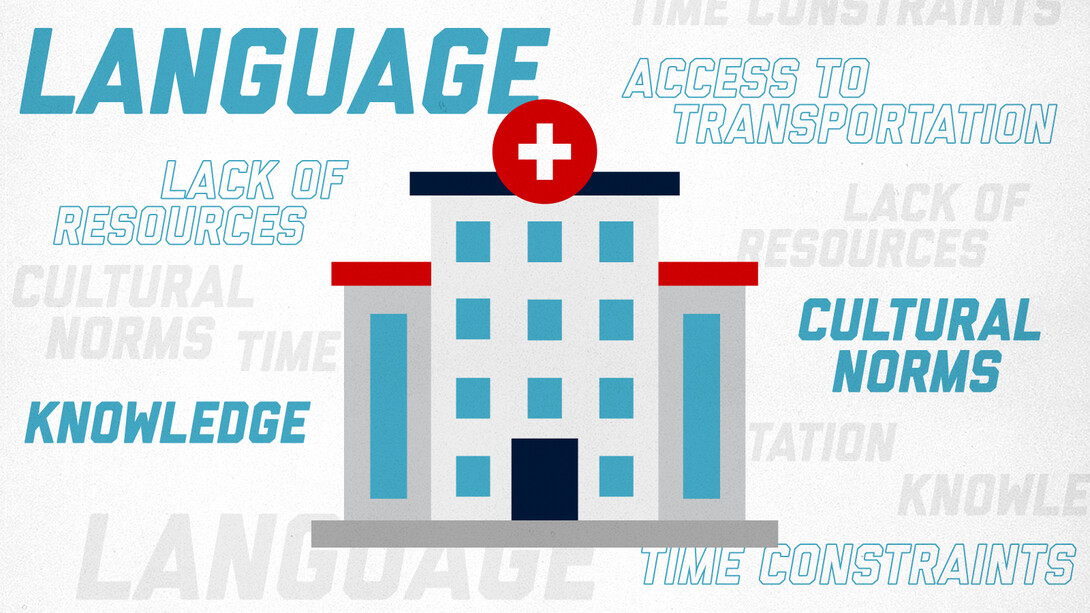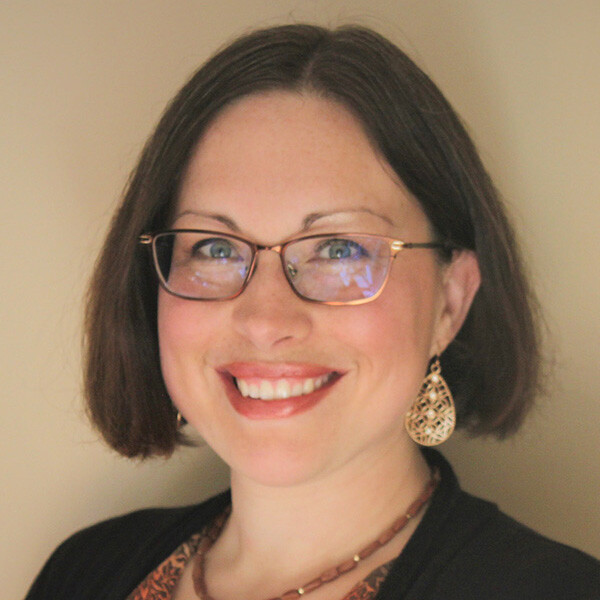
Lincoln is home to the largest population of Yazidi refugees in the United States, numbering in the thousands. Among them is Husker Falah Rashoka, who served the United States Army in Iraq. Now, as a doctoral student in nutrition and health promotion at the University of Nebraska–Lincoln, he’s turned a research lens toward helping his community overcome barriers to health care.

To first pinpoint the barriers, Rashoka and his adviser, Megan Kelley, formed a Midwest focus group that includes Yazidi community members, health care providers and social workers. Recently, they published an article in the International Journal for Equity in Health, using qualitative analysis of the focus group discussions to establish overarching themes — informational barriers, resource barriers, social barriers, effects of barriers and need for education — how they interplay with one another, and strategies that may help mitigate them.

“The initial goal of these information-gathering sessions was to identify what was most influential in terms of accessing care, and based on what we found, we developed an initial set of educational materials on accessing health care,” said Kelley, assistant professor in the College of Education and Human Sciences. “One big takeaway, I think, is the importance of including community members in decision-making and having people at the table where policies and programs are being designed for them.”
According to the focus group analysis, language plays an outsized role, as Yazidis speak Kurmanji and translators are not always familiar with this dialect.
“Language is a primary barrier,” Kelley said. “How people communicate affects all levels of access to care, from finding information about the resources available, to actually calling and making an appointment or learning about what kind of services are offered, to communicating with your provider. Related to that is the issue of knowing how the system works because it is a complex system.”
Language also interplays with previous experiences and has produced confusion regarding the health care system in the United States, as lack of knowledge of the system was also cited as a major barrier.
“The system of health care in the Yazidi community in Iraq is a general health care system, where anybody can go to a doctor or to a clinic for free,” Rashoka said. “When they moved to the United States, they faced a big change in the system, which is a private system with things like health insurance or Medicaid.”
Additionally, Rashoka said, although they are often mistaken for other ethnic groups from the Middle East, Yazidis have cultural norms, including gender norms, that are different, but few understand them.
“I think cultural norms is an important one that many people are not aware of, and in terms of some people not seeking care — or mental health services — it is a problem, and it’s bigger than we imagine,” Rashoka said. “Men will avoid seeking mental health care, for example, because they think it is not being strong.”
The focus group research identified other barriers, too, including transportation, time constraints due to work and family responsibilities, economic security and others. The article used the social-ecological model to lay out six recommendations, including culturally specific educational programs and interpreters who are medically trained and align linguistically.
“The application of the study findings and the recommendations we provided are the most important to me,” Rashoka said.
From the focus group discussions and the recommendations they provided in the article, Rashoka and Kelley have since developed some tools to help inform the Yazidi community and the health care providers that work with them. While they had planned to hold educational sessions in person, the COVID-19 pandemic shifted their delivery. Instead, they created an educational booklet about the health care system that is printed in both English and Arabic, combined with phone calls conducted in Kurmanji. They also developed a webinar for health care providers to inform about the Yazidi community, various barriers they face and ways to overcome them. As pandemic restrictions allow, Rashoka hopes to establish in-person events to continue education.
“Part of why we want to reach health care providers, too, is that there is uniqueness to the Yazidi culture,” Rashoka said. “Also, we wanted to include as much information as possible about how they can work with persons who’ve experienced terrorism, genocide, a lot of traumatic things in their life, so we focused also on trauma-informed care.”
“Providers know trauma-informed care, and there are screening procedures to identify patients who have experienced trauma,” Kelley said. “But based on our conversations, the experiences of Yazidi patients do not always reflect the intended outcomes of that approach. If you’re working with a member of the Yazidi community, odds are higher that they have some experience with trauma, and extra care should be taken to provide them with safety, choice and empowerment as patients.”
Rashoka and Kelley are gathering data on the use of the tools and their efficacy and plan to publish the results in the near future.
“There are lots of organizations in Lincoln and across the state and country that are putting in the work and doing a phenomenal job for marginalized communities like the Yazidi,” Kelley said. “I think this study lends support to the idea that there’s room for more focus and time and funding to expand those organizations that are doing the work to address these ongoing, consistently identified problems that influence access to care and the health outcomes of our communities.”







